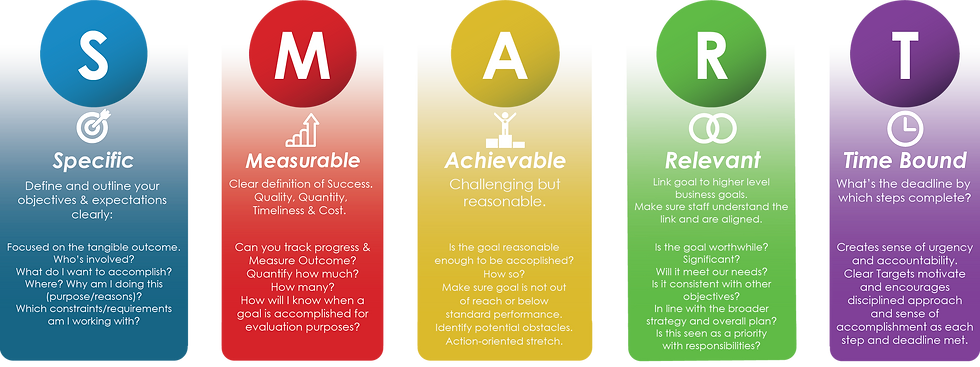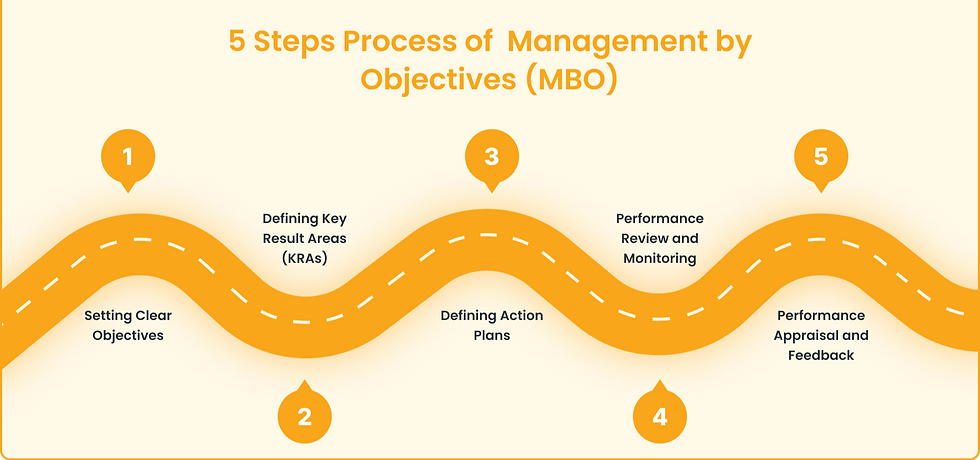From Vision to Action: The Power of Objectives in Achieving Meaningful Progress
- Aug 2, 2025
- 3 min read
Following on from my recent blog on vision — that North Star guiding our purpose and direction — I thought it was only fitting to delve deeper into the next essential component of progress: Objectives.
While vision gives us clarity of where we want to go, objectives ensure we don’t drift off course. They translate ambition into tangible outcomes. They are the “what” and the “how” that bridge the space between intention and impact.

Why Objectives Matter
Objectives are key to ensuring alignment, accountability, and momentum. Without them, we risk becoming reactive rather than proactive, busy without being purposeful. Clear objectives allow individuals and teams to focus their energy, measure progress, and adapt in real time. They serve as checkpoints in our journey — keeping us anchored when we’re tempted to wander, and giving us confidence when we’re unsure if we’re moving forward.
Objectives in Theory: A Few Guiding Frameworks
Two well-established theories help frame the importance of well-structured objectives:
1. Locke and Latham’s Goal-Setting Theory
This foundational theory posits that specific and challenging goals lead to higher performance than vague or easy ones. Motivation increases when objectives are clear, attainable, and — critically — when there is feedback on progress. This theory underpins the power of SMART goals, emphasising how clarity and challenge together fuel performance.

2. Management by Objectives (MBO) – Peter Drucker
Drucker’s MBO framework calls for employees and managers to collaboratively define goals, aligning individual outputs with organisational purpose. The beauty of MBO lies in its duality: it’s as much about performance as it is about engagement. When people understand the "why" behind their objectives and feel ownership over them, they show up more fully — not just to tick boxes, but to contribute meaningfully.

The Role of Conversations: More Than a Yearly Review
Objectives should never be set and forgotten. Too often, they’re agreed upon at the beginning of the year and then buried under layers of operational noise. This is where performance development conversations become critical.
Regular check-ins — monthly, quarterly, or in rhythm with key milestones — ensure that objectives remain relevant, flexible, and alive. They provide space to reflect, recalibrate, and reaffirm commitment. They also uncover hidden blockers, surface new opportunities, and create moments for meaningful coaching.
Think of these conversations not as bureaucratic rituals, but as strategic reflections. Done well, they turn objectives from static documents into living agreements between people who care about growing and succeeding.
From Theory to Practice: A Human Approach
In today’s evolving world of work — where hybrid teams, shifting priorities, and well-being are all part of the equation — objectives need to be both rigorous and humane. They must stretch us, yes, but they must also adapt to the reality that progress isn’t always linear. Holding regular, honest conversations about objectives creates psychological safety, builds trust, and ultimately drives better performance — not through pressure, but through clarity and connection.
A Final Thought
Objectives are more than performance targets. They are promises we make to ourselves and to others about who we want to become, what we want to contribute, and how we plan to grow.
So here’s a question worth sitting with: Are your objectives simply things you’re expected to deliver — or are they reflections of what truly matters to you right now?



Comments